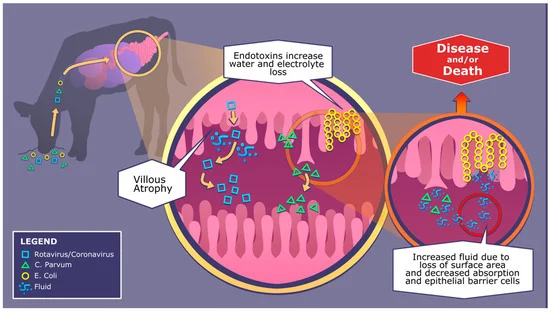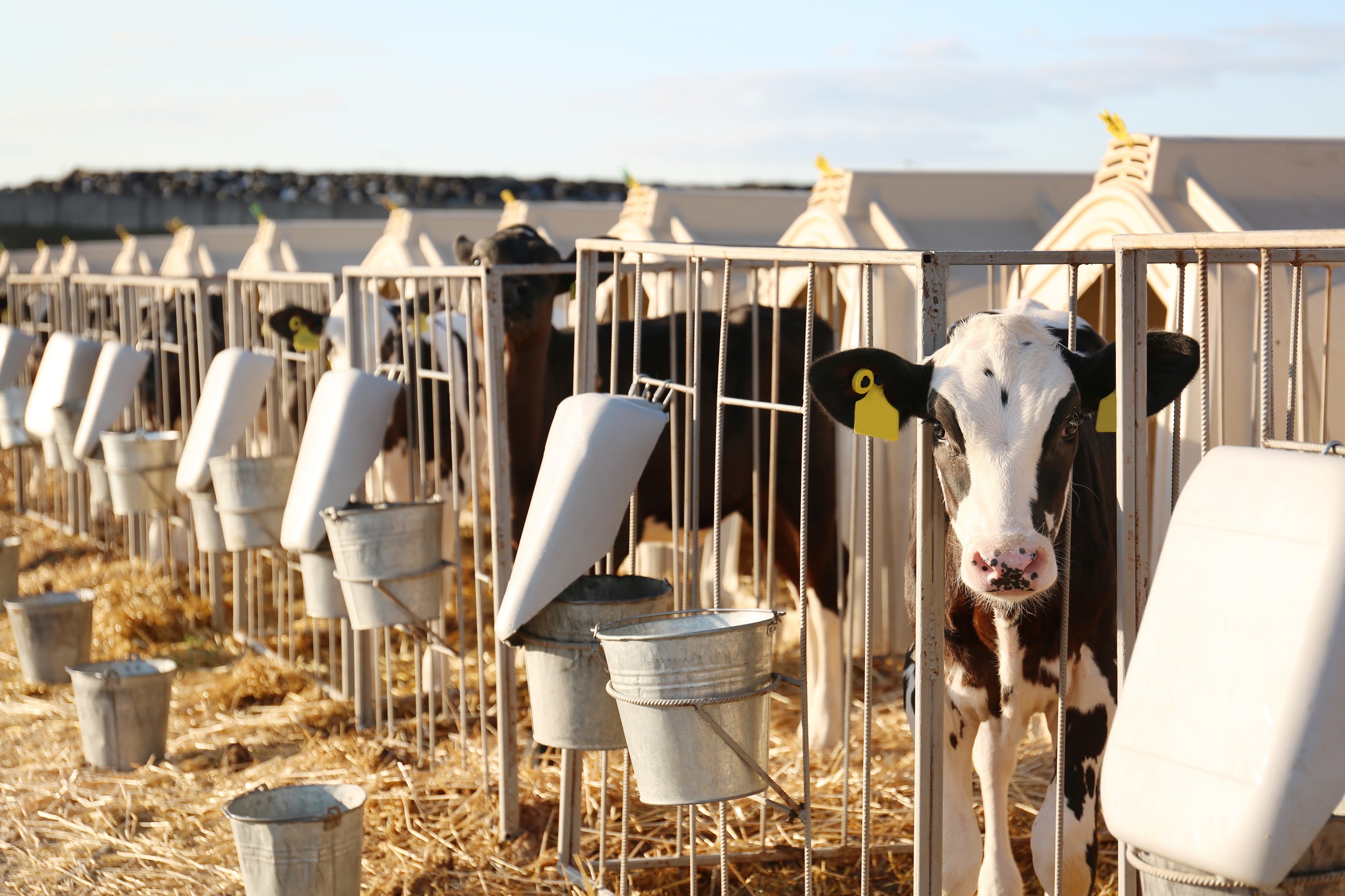
Calf scour is the most common cause of diarrhea and death in calves during the pre-weaning period. It accounts for 75% of all deaths among calves under 3 weeks of age. The causes of scours in calves under 21 days of age are difficult to determine. There is usually not one single cause but an interaction between calf management, diet, the environment, poor immunity and pathogenic viruses and bacteria. Viruses and bacteria are the major causes of infectious calf scours.
Types of scours
Dietary scours
This mainly results from overfeeding (especially with cold milk) or incorrect milk replacer concentrations. Sudden changes in feed type especially changing from whole milk to milk replacer or use of poor quality milk replacers can also lead to dietary scours. The best control measure for dietary scours is changing from milk to electrolytes for at least 24 hr.
White scours
This generally occurs in the first few days and is usually caused by pathogenic strains of bacteria known as Escherichia coli (or E. coli), which invade the gut wall. Foul-smelling, grey to creamy-white, severe diarrhea is seen. Calves quickly become dehydrated and lethargic, will not eat, are ‘tucked up’ in the abdomen and may die suddenly. Stress factors, such as cold or partial starvation can increase the occurrence and severity of white scours.
Viral and protozoal scours
These are generally caused by rotavirus, coronavirus or Cryptosporidium (protozoal) and constitute most of the scours in calves less than 3 weeks old. Antibiotics do not kill viruses or protozoa and so are not effective in treating these scours.
Salmonella scours
This occurs more commonly in older calves causing bloody, putrid diarrhea containing mucus. They develop fever, are weak and rapidly become dehydrated and emaciated. They have a high death rate. Less severely affected calves can have rough coats, pot bellies and become stunted. They can also become carriers of Salmonella and continually infect other animals and the bacteria can be passed onto humans also.
Worm scours
These are caused by internal parasites eaten by grazing calves. These would not occur in housed systems unless purchased calves are older and have previously run at pasture.
Coccidiosis or blood scours
This is caused by protozoa infecting the calf from 3 weeks of age and onwards and can easily be confused with white scours. Affected calves show blood-stained scouring with a lot of mucus and may eventually develop anaemia. Coccidiosis is a stress-related disease and usually affects calves that are reared in wet, crowded and unhygienic conditions.
Management of scours
Prevention of scours emphasize on good hygiene and minimizing stress. In addition, to ensure healthy and disease resistant calves colostrum provision and biosecurity practices are critical. Calves are most at risk from infectious scour in the first 3-4 weeks of life and need a continuous source of protection through the passive transfer of antibodies in the colostrum.Veterinary advice should be sought to obtain an accurate diagnosis and the most appropriate treatment. Sick calves should be isolated from healthy calves and tended to after feeding other calves to minimize the spread of infection. Drinking water should be freely available. Calves with less than 8% dehydration and still drinking can be rehydrated orally by electrolyte solutions. These supply an energy supplement and replace lost vital minerals and fluids in scouring calves. Very dehydrated calves will require intravenous therapy. The amount of fluid required for daily maintenance requirements and to replace lost fluids can be calculated, based on live weight and the degree of dehydration. After 24 hr, reintroduce milk (if it has been withdrawn), but continue electrolytes for a further 48 hr. It is preferable to ask the veterinarian to give intravenous fluids to very sick and dehydrated calves because force feeding often results in pneumonia because such weak calves cannot swallow properly. Diarrhea powders containing kaolin, pectin, chalk, corn flour or other methods of slowing down feed passage through the gut reduce the severity of the scouring. Antibiotics may be required, especially if the calf remains dull after rehydration, and if blood appears in the faces.

Jinu Manoj1, Indu Panchal2 and Manoj Kumar Singh3
1Disease Investigation Officer, College Central Laboratory, LUVAS, Hisar
2Assistant professor, CODST, LUVAS, Hisar
3Assistant professor, Dept. LPM, SVPUAT, Meerut



















